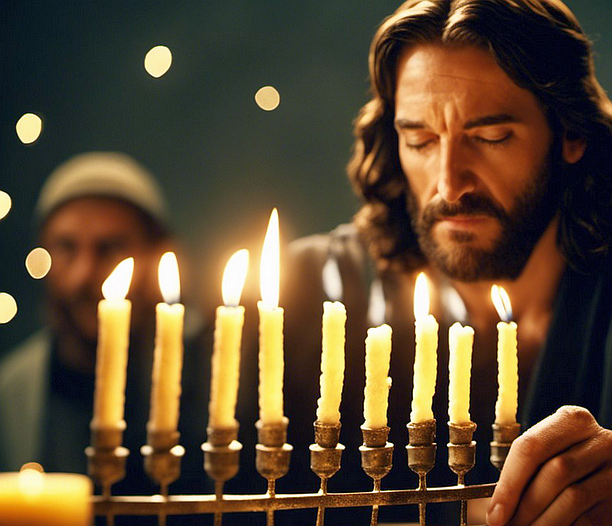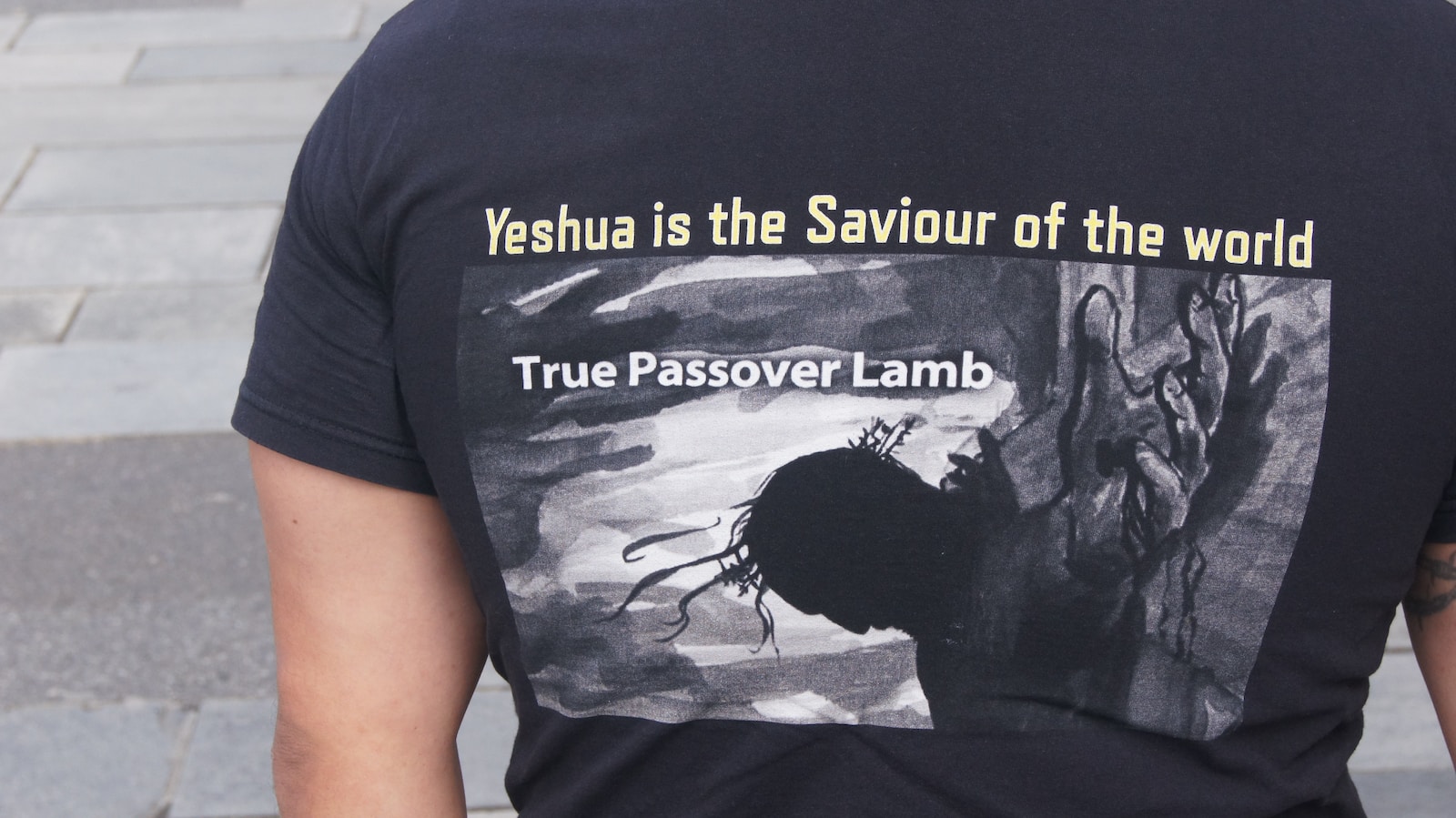Introduction: Understanding the Connection between Leviticus 7, Jesus, and Messianic Prophecy
Studying the connection between Leviticus 7, Jesus, and Messianic prophecy is of great significance in understanding the fulfillment of Old Testament prophecies. Leviticus 7 plays a crucial role in foreshadowing Jesus’ redemptive work and establishing his identity as the promised Messiah. By exploring the deeper meaning and spiritual significance of Leviticus 7 in relation to Jesus and Messianic prophecy, we can gain a deeper understanding of the biblical narrative and the continuity of God’s plan of redemption.
Leviticus 7 is a chapter within the book of Leviticus, which is part of the Pentateuch, the first five books of the Bible. Leviticus focuses on the laws and rituals of the Israelite community, providing instructions for their worship and daily life. Within Leviticus 7, specific details are given regarding the offerings and sacrifices presented to God, outlining the procedures and regulations for various types of offerings.
The offerings described in Leviticus 7 hold great significance in the context of the Israelite worship system. They served as a means for the Israelites to seek reconciliation with God and to express their devotion and gratitude. These offerings laid the foundation for understanding Jesus as the ultimate sacrifice for humanity. Jesus’ sacrificial death on the cross fulfills the requirements of the offerings described in Leviticus 7, providing a perfect atonement for sin and offering reconciliation with God.
Overview of Leviticus 7
Leviticus is a book found in the Pentateuch, the first five books of the Bible. It focuses on the laws and rituals of the Israelite community and provides instructions for their worship and daily life. Leviticus 7 specifically deals with the offerings and sacrifices presented to God, outlining the procedures and regulations for various types of offerings.
In Leviticus 7, detailed instructions are given regarding the different types of offerings that were presented to God, including the burnt offering, the grain offering, the sin offering, and the guilt offering. Each offering had specific requirements and regulations that the Israelites were to follow in order to properly present their offerings to God.
The burnt offering was a voluntary offering that symbolized complete surrender and dedication to God. It was a way for the Israelites to express their devotion and commitment to God, offering their whole selves to Him. The grain offering, on the other hand, was a gift of gratitude and thanksgiving. It consisted of grains, oil, and frankincense, symbolizing the provision and goodness of God.
The sin offering and the guilt offering were offered to make atonement for specific sins committed by the Israelites. The sin offering was for unintentional sins, while the guilt offering was for sins that resulted in a loss or infringement against someone else. These offerings were meant to provide a way for the Israelites to seek forgiveness and reconciliation with God.
Messianic Prophecy in the Old Testament
Messianic prophecy refers to the predictions and promises in the Old Testament that foretell the coming of the Messiah, the anointed savior. These prophecies create an anticipation among the Israelites for the arrival of the Messiah and lay the foundation for understanding Jesus’ role as the fulfillment of these prophecies.
The Old Testament is replete with Messianic prophecies that point to Jesus as the promised Messiah. These prophecies serve as a roadmap, guiding the Israelites and later believers to recognize Jesus’ identity and mission. Some of the most well-known Messianic prophecies include Isaiah 7:14, which foretells the birth of the Messiah from a virgin, and Micah 5:2, which prophesies that the Messiah will be born in Bethlehem.
The fulfillment of these prophecies in Jesus is a testament to the faithfulness and sovereignty of God. Through his birth, life, death, and resurrection, Jesus fulfills the Messianic prophecies and establishes his identity as the long-awaited Savior. The prophecies provide a clear framework for understanding Jesus’ role in God’s plan of redemption and offer a solid foundation for our faith in Him.
The Hebrew Feasts and the Messiah
The Hebrew feasts, as observed in the Old Testament, hold both historical and prophetic significance. These feasts symbolize various aspects of Israel’s history, their relationship with God, and their future hope in the Messiah. The feasts serve as appointed times where God reveals his plan for salvation and redemption.
One significant feast is the Feast of Tabernacles, also known as Sukkot, which represents Israel’s time in the wilderness and their future hope in the millennial kingdom of God. This feast was a reminder of God’s faithfulness to the Israelites during their forty years of wandering in the wilderness. It was a time of rejoicing and celebration, as the Israelites dwelt in temporary shelters and remembered God’s provision.
During the Feast of Tabernacles, Jesus played a significant role in fulfilling Messianic prophecy. In John 7:37-39, Jesus proclaims himself as the giver of living water and the light of the world. His presence and teachings during this feast establish his identity as the long-awaited Messiah, the one who brings spiritual nourishment and enlightenment to all who believe in him.
The Hebrew feasts are divided into those that point to Jesus’ first coming and those that point to his second coming. Each feast outlines a specific aspect of God’s plan for salvation and redemption. For example, Passover represents redemption and justification through the blood of Jesus, while Atonement represents a day of forgiveness for Israel and their recognition of Jesus as their high priest and atoning sacrifice. The feasts provide a rich framework for understanding the connection between the Old Testament prophecies and the fulfillment of these prophecies in Jesus.
Leviticus 7: Symbolism and Foreshadowing
Leviticus 7 contains various symbols and foreshadowing elements that point to Jesus’ redemptive work. The sacrificial system described in Leviticus 7 foreshadows Jesus’ ultimate sacrifice on the cross. The role of the high priest in offering the sacrifices symbolizes Jesus’ role as the ultimate high priest who offers himself as the atoning sacrifice for humanity.
One significant offering described in Leviticus 7 is the peace offering, which signifies reconciliation with God through the perfect sacrifice of Jesus. This offering provides a powerful foreshadowing of Jesus’ redemptive work, highlighting the need for a greater sacrifice to restore the broken relationship between humanity and God.
The regulations and procedures outlined in Leviticus 7 point to the insufficiency of the animal sacrifices and the need for a perfect sacrifice. These regulations highlight Jesus’ role as the ultimate high priest and atoning sacrifice, fulfilling the requirements of the sacrificial system described in Leviticus 7.
Additionally, Leviticus 7 emphasizes the importance of the blood in the sacrificial system. The blood of the animals offered in Leviticus 7 was a symbol of life and was used to make atonement for sin. This foreshadows Jesus’ shed blood on the cross, which provides the ultimate atonement for the sins of humanity. Through his sacrificial death, Jesus fulfills the symbolism and foreshadowing found in Leviticus 7, offering redemption and reconciliation with God.
Jesus as the Fulfillment of Messianic Prophecies
Jesus fulfills the Messianic prophecies through his birth, life, death, and resurrection. His birth in Bethlehem fulfills the prophecy in Micah 5:2, establishing him as the promised Messiah. Throughout his life, Jesus fulfills various Messianic prophecies, such as his role as the suffering servant described in Isaiah 53.
The suffering and death of Jesus on the cross provide the ultimate fulfillment of the Messianic prophecies. Through his sacrificial death, Jesus atones for the sins of humanity, fulfilling the prophecies of a suffering Messiah. His resurrection validates his identity as the Messiah and establishes the continuity and reliability of God’s plan of redemption.
Furthermore, Jesus fulfills the Messianic prophecies through his teachings and ministry. His teachings about the kingdom of God, love, and forgiveness align with the prophecies of a righteous and just ruler. His fulfillment of these prophecies validates his authority and establishes him as the long-awaited Messiah.
The Importance of Biblical Interpretation
Proper biblical interpretation is essential in understanding the connection between Leviticus 7, Jesus, and Messianic prophecy. It involves analyzing the historical, cultural, and literary aspects of the texts to grasp their intended meaning. Contextual analysis is crucial in uncovering the deeper spiritual significance and intended message of the biblical texts.
Different interpretive approaches, such as literal, allegorical, and typological, can be employed to understand the relationship between the Old Testament and Jesus. Each approach offers unique insights into the connections between Leviticus 7, Jesus, and Messianic prophecy, allowing for a deeper understanding of God’s redemptive plan.
Biblical interpretation requires careful study and consideration of the original language, historical context, and cultural background. It is important to consider the broader biblical narrative and the overall message of Scripture when interpreting specific passages. By employing sound principles of interpretation, we can gain a deeper understanding of the connection between Leviticus 7, Jesus, and Messianic prophecy.
Conclusion: Recognizing Jesus as the Fulfillment of Messianic Prophecy in Leviticus 7
Studying the connection between Leviticus 7, Jesus, and Messianic prophecy is vital in understanding the fulfillment of Old Testament prophecies. Leviticus 7 foreshadows Jesus’ redemptive work and establishes his identity as the promised Messiah. By recognizing Jesus as the fulfillment of Messianic prophecies, we strengthen our faith and affirm the trustworthiness of God’s Word.
Through the offerings and sacrifices described in Leviticus 7, we see the need for a greater sacrifice, which Jesus fulfills through his sacrificial death on the cross. The Messianic prophecies in the Old Testament point to Jesus as the long-awaited Savior, and his fulfillment of these prophecies validates his identity as the Messiah.
As we continue to explore the rich connections between Leviticus 7, Jesus, and Messianic prophecy, we deepen our understanding of biblical interpretation and the redemptive work of Christ. May our study of Leviticus 7 and its connection to Jesus lead us to a greater appreciation of God’s plan of redemption and a deeper relationship with our Savior.
#Leviticus7 #JesusFulfillment #MessianicProphecies #BiblicalInterpretation #Redemption #OldTestament #FaithJourney #DivinePlan #BiblicalUnderstanding #HopeInChrist #SpiritualInsights



